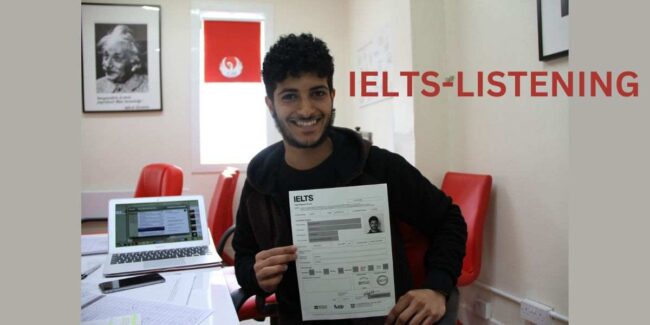Certainly! Improving your IELTS listening skills is crucial for success in the exam. Listening is the process of receiving and interpreting sounds to
Certainly! Improving your IELTS listening skills is crucial for success in the exam. Listening is the process of receiving and interpreting sounds to understand the meaning conveyed by the speaker. In the context of language learning or exams like IELTS, listening involves actively paying attention to spoken words, phrases, or sentences to comprehend and respond appropriately. Here are 10 tips to help you enhance your IELTS listening skills:
Table of Contents
1. Knowledge about Test Arrangement
- The first audio recording for capturing question
- In the first part of the audio, you will hear a once
- Answer the question according to the audio
- Check the answer within a moment at last
2. Practice Regularly:
Consistent practice is key. Listen to a variety of English materials, such as podcasts, news, and academic lectures, to expose yourself to different accents and speaking styles.

- Podcasts:*** Listen to podcasts on topics of interest. There are podcasts available on a wide range of subjects, and they often feature different accents and speaking styles.
- News Outlets:*** Tune in to English-language news channels or radio stations. News programs typically use clear and formal language, helping you improve your comprehension skills.
- Audiobooks:*** Choose audiobooks in English, especially those that match your proficiency level. Follow along with the text as you listen to improve both listening and reading skills.
- Language Learning Apps:*** Many language learning apps offer audio exercises and conversations. Incorporate these into your daily routine for consistent practice.
- YouTube Videos:*** Watch educational videos, tutorials, or vlogs in English. This is an excellent way to expose yourself to different accents and colloquial expressions.
- Language Exchange:*** Engage in language exchange with native English speakers. This can be done through language exchange platforms or by connecting with language exchange partners locally.
Top 10 Skills For Students
- TV Shows and Movies:*** Watch English-language TV shows and movies. Initially, you may want to use subtitles, but gradually challenge yourself to watch without them to enhance your listening skills. Al Jazira is one of the important channels telecasted in English all over the world that may be helpful for you in listening practice.
- Online Courses:*** Enroll in online offered courses that include audio components. Many language learning platforms offer courses with listening exercises, allowing you to practice within a structured learning environment.
- Music with Lyrics:*** Listen to songs with lyrics. Follow along with the lyrics to improve your understanding of spoken English and to learn colloquial expressions.
- TED Talks:*** Explore TED Talks on various subjects. These talks often feature articulate speakers, and you can find talks on subjects that interest you.
50 English Grammar MCQ Questions for the Test
Remember, the key to improvement is consistent and diverse practice. Mix up the types of materials you listen to, and challenge yourself by gradually increasing the difficulty level. Additionally, actively engage with the content by summarizing what you’ve heard or discussing it with others to reinforce your comprehension

3. Use Authentic Materials:
Practice with real IELTS listening materials. Familiarize yourself with the format, pace, and types of questions you’ll encounter in the test.
4. Understand Different Accents:
IELTS listening passages can include various English accents. Listen to speakers from different English-speaking countries to improve your ability to understand diverse accents.
5. Note-Taking Skills:
Develop effective note-taking skills. Learn to quickly jot down key points, important details, and keywords while listening. This will help you in answering questions later.
6. Focus on Predictions:
Anticipate what you are going to hear. Look at the questions before listening to the audio, and make predictions about the answers. This will help you stay focused during the listening passage.
7. Improve Time Management:
Practice managing your time during the test. You won’t have much time to review your answers, so it’s important to be efficient in capturing information and answering questions.
8. Expand Your Vocabulary:
Enhance your vocabulary, especially in areas commonly covered in IELTS listening, such as education, technology, health, and environment. This will make it easier for you to understand and interpret the spoken content. Note important vocabulary from newspapers or magazines. Then search the word in the dictionary to find the correct pronunciation and spelling. You can follow some guides for vocabulary:
- Contextual Learning
- Use vocabulary guide
- Flashcard Using
- Thematic Learning
- Word of the Day
- Play word game
- Learn about word families
- Read Aloud
9. Listen to Different Genres:
Listen to a variety of genres, including conversations, interviews, discussions, and monologues. This will help you become comfortable with different speaking styles and contexts.
- Join in the conversation with your friends & family
- Seminar
- Oral communication
10. Simulate Test Conditions:
Practice under conditions similar to the actual exam. Use a timer, and answer sheets, and follow the test rules. This helps you get accustomed to the pressure and conditions of the IELTS listening test.
Remember, consistent and focused practice is essential for improvement. By incorporating these tips into your study routine, you’ll be better prepared to tackle the IELTS listening section successfully
COMMENTS